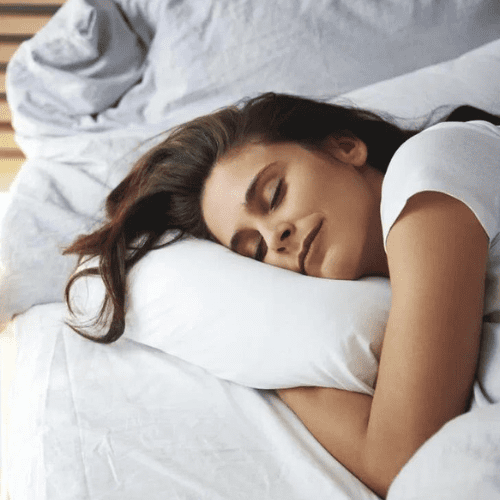Best
Direction to Sleep: Expert Advice and Scientific Insights for Optimal Health
Discover the best
direction to sleep with expert advice and scientific insights. Learn how sleep
orientation can impact your health, mental clarity, and overall well-being.
Optimal
sleep direction, Sleep direction for health, Sleep experts advice, Vastu
Shastra sleep direction, Feng Shui sleep direction, Sleep direction benefits,
Sleep experts have
extensively studied the impact of sleep direction on health and overall
well-being. While personal preferences and cultural beliefs play significant
roles, scientific insights provide valuable guidance on the best direction to
sleep. Here’s what sleep experts advise:
Understanding the Importance of Sleep Direction
The Role of Earth’s Magnetic Field
North-South Axis
Some sleep experts
suggest that sleeping along the north-south axis can align the body with the
Earth’s magnetic field, potentially enhancing sleep quality. This alignment may
influence brain activity and promote a more restful sleep.
Cardiovascular Health and Sleep Orientation
Southward Sleeping
Research indicates
that sleeping with your head pointing south can improve cardiovascular health.
This orientation may reduce the risk of hypertension and promote better
circulation, leading to a more restful sleep.
Cultural Beliefs and Scientific Insights
Vastu Shastra and Feng Shui
While Vastu Shastra
recommends sleeping with the head to the south for harmony and health, Feng
Shui advises sleeping with the head to the north for positive energy flow.
Sleep experts acknowledge these cultural beliefs but emphasize the importance
of scientific evidence in determining the best sleep direction.
Psychological Effects of Sleep Direction
Mental Clarity and Focus
Sleeping with your
head pointing east is believed to enhance mental clarity and focus. Sleep
experts note that this orientation may align with the body’s natural circadian
rhythms, promoting better cognitive function and overall well-being.
Practical Tips for Finding Your Optimal Sleep Direction
Experts recommend
keeping a sleep diary to track your sleep patterns and quality when experimenting
with different sleep directions. This can help identify which orientation works
best for you.
Consulting Sleep Experts
Sleep experts suggest
consulting with professionals to receive personalized advice based on your
specific health needs and lifestyle. This can provide valuable insights into
the best sleep direction for your overall well-being.
Combining Cultural Wisdom and Scientific Evidence
Ultimately, finding
the best direction to sleep involves a combination of cultural wisdom and
scientific evidence. By considering expert advice and experimenting with
different orientations, you can discover the optimal sleep direction that
promotes better health and restful sleep.
Key Takeaways
- Sleeping along the north-south axis may
align with Earth’s magnetic field, enhancing sleep quality. - Southward sleeping can improve
cardiovascular health and promote better circulation. - Eastward sleeping may enhance mental
clarity and align with natural circadian rhythms. - Personal experimentation and consulting
sleep experts are crucial for finding your optimal sleep direction.
By following sleep
experts’ advice and incorporating these insights, you can make informed
decisions about the best direction to sleep, ultimately improving your overall
health and well-being.
What
Is the Best Direction to Sleep?
When it
comes to optimizing your sleep quality, the direction you sleep can play a
significant role. From ancient practices to modern scientific insights,
exploring the best direction to sleep can help enhance your overall well-being.
The
Mystique of Directions and Sleep
Different
cultures and belief systems have long emphasized the importance of sleep
direction. This mystique surrounding the optimal direction to sleep continues
to intrigue many, with various traditions offering unique perspectives.
In
Which Direction Should We Sleep?
Choosing the
right direction to sleep involves understanding both cultural beliefs and
scientific principles. Let’s dive into the different directions and their potential
impacts on your sleep quality.
Best
Direction to Sleep: Scientific Insights
Science
offers valuable insights into how sleep direction can affect our health. By
examining magnetic forces, cardiovascular health, and brain activity, we can
uncover the best direction to sleep for optimal rest and rejuvenation.
Figuring
Out the Best Direction to Sleep
Determining
the best direction to sleep requires a combination of cultural wisdom and
scientific evidence. Personal experimentation and consulting sleep experts can
help you find the direction that works best for you.
Exploring
the North Direction
Despite some
cultural beliefs favoring the north direction, there is skepticism in certain
Eastern cultures regarding its benefits for sleep quality.
Magnetic
Forces and Sleep Quality
Sleeping
with your head pointing north may be influenced by Earth’s magnetic forces,
potentially impacting your sleep quality and brain activity.
Exploring
the South Direction
Benefits
According to Vastu Shastra
Vastu
Shastra proponents believe that sleeping with your head to the south can
enhance overall well-being, aligning with natural energy flows.
Circulation
and Sleep Quality
Aligning
your head southward may also improve circulation and, subsequently, your sleep
quality.
Exploring
the East Direction
Aligning
with the Sunrise
Sleeping
with your head pointing east aligns with the rising sun, potentially enhancing
your energy levels and promoting mental clarity.
Benefits
for Mental Clarity
The eastward
direction is believed to support mental clarity and focus, making it a
favorable choice for many.
Exploring
the West Direction
Potential
Drawbacks
Sleeping
with your head pointing west may have potential drawbacks, such as disrupting
your sleep cycle and causing restlessness.
Psychological
Impacts
Westward
sleeping direction might have psychological impacts, influencing your overall
sleep quality and mental state.
Scientific
Perspectives on Sleep Directions
Earth’s
Magnetic Field and Brain Activity
Scientific
studies suggest that the Earth’s magnetic field can influence brain activity
and sleep quality, making sleep direction an important consideration.
Cardiovascular
Health and Sleep Orientation
The
orientation of your body during sleep can affect cardiovascular health, with
certain directions potentially offering more benefits than others.
Psychological
Effects of Sleeping Direction
The
direction you sleep in can have psychological effects, influencing your mood
and mental health. Understanding these impacts can help you choose the best
direction to sleep.
Practical
Tips for Personal Experimentation
Starting
with a Sleep Diary
Keep a sleep
diary to track your sleep quality and patterns when experimenting with
different sleep directions.
Conducting
the Directional Experiment
Try sleeping
in different directions for a few nights each and note any changes in sleep
quality and overall health.
Considering
Other Sleep Factors
Consider
other factors that might affect your sleep, such as room temperature, bedding,
and lifestyle habits, alongside sleep direction.
Listening
to Your Body’s Responses
Pay
attention to how your body responds to different sleep directions and adjust
accordingly to find the most comfortable and restful position.
Maintaining
a Critical Mindset
Approach the
experimentation with a critical mindset, keeping an open mind to both cultural
beliefs and scientific evidence.
Sharing
and Comparing Experiences
Share your
experiences with others and compare results to gain a broader understanding of
the best direction to sleep.
Know More:- https://www.facebook.com/profile.php?id=61560866833455
Consulting
Sleep Experts
Consult
sleep experts for personalized advice and insights into how sleep direction can
impact your overall health and well-being.
By following
these SEO-optimized headings and incorporating the tips provided, you can
create engaging, informative, and structured content that addresses various
perspectives on the best direction to sleep.
Conclusion:
Ultimately,
the best direction to sleep varies from person to person. By considering
cultural beliefs, scientific insights, and personal experiences, you can find
the optimal sleep direction that promotes better rest and overall health.









2 thoughts on “Best Direction to Sleep: Expert Advice and Scientific Insights for Optimal Health”